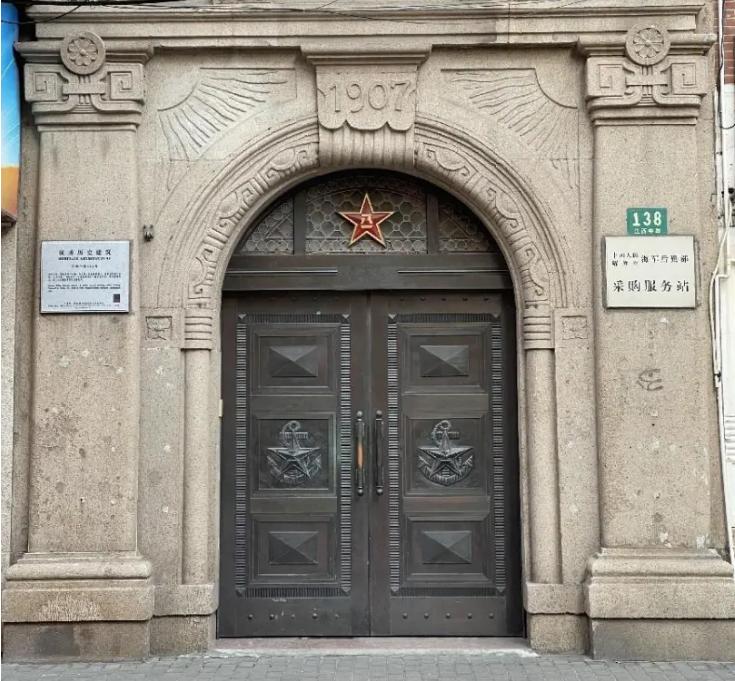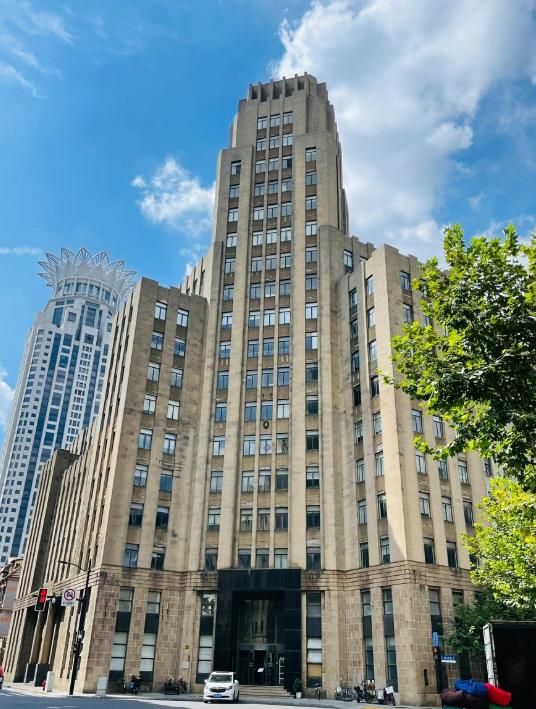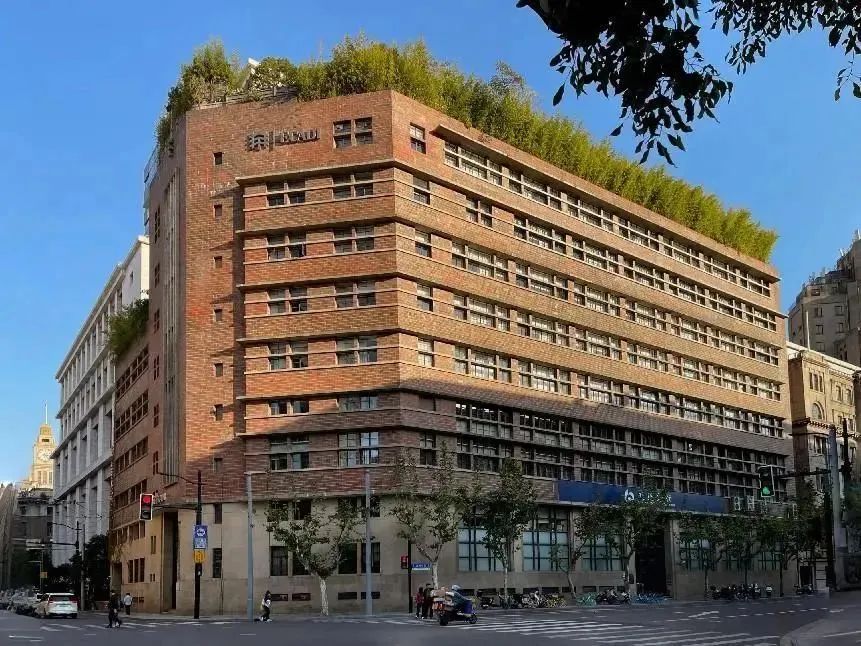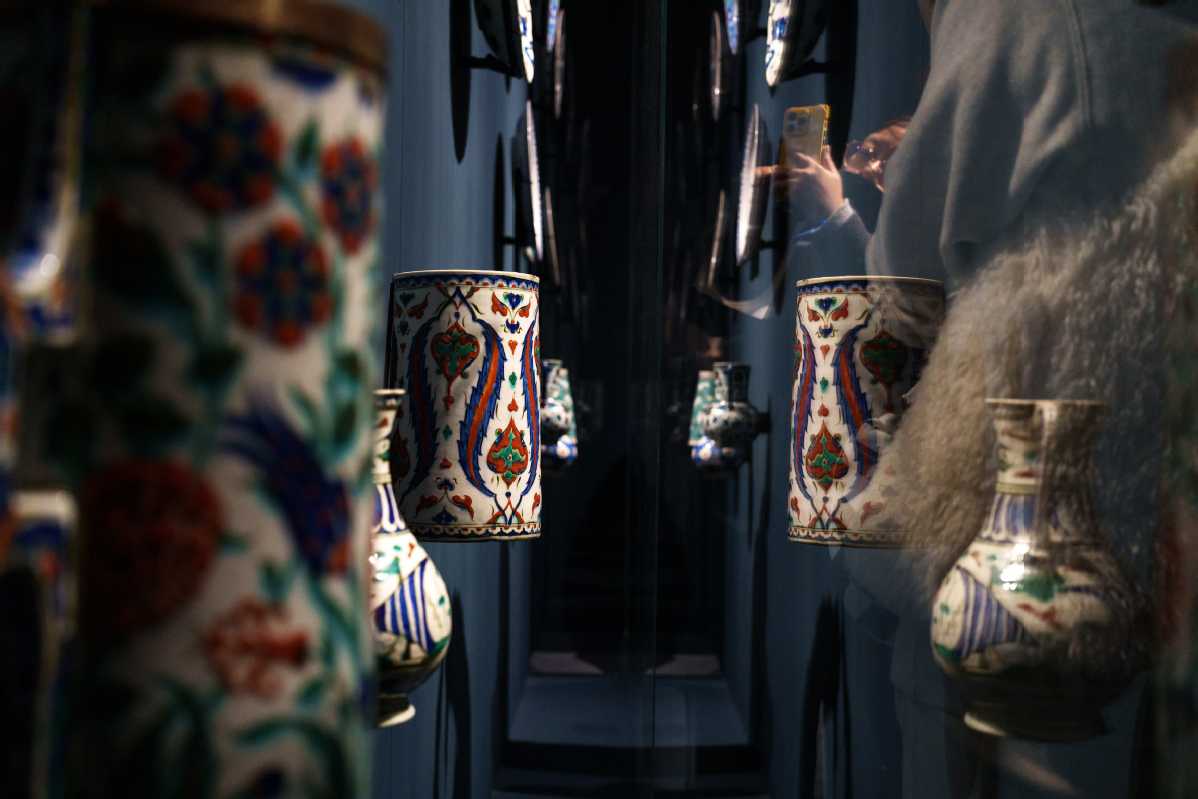Bank street reveals Shanghai's financial prosperity
As an important section of the Bund, Middle Jiangxi Road, once a leading financial street in East Asia, showcases the city's unique cultural heritage and architectural style to the world.
The road retains many historic buildings that represent Shanghai's distinctive urban character. In the early 20th century, over 30 banks and six insurance companies were established along both sides of the road, earning it the nickname Bank Street, which holds a significant place in Shanghai's financial history.
In March 2018, Shanghai launched a comprehensive renovation plan of the Bund, focusing on the riverfront buildings, known as "the first facade", and simultaneously began restoring the Bund's second facade, namely its non-riverfront buildings, including those on Middle Jiangxi Road.

No 138 Middle Jiangxi Road
The China Import & Export Lumber Co Building on No 138 Middle Jiangxi Road was listed as a "Historical Building of Shanghai" by the Shanghai Municipal People's Government in 1999.
The building, completed in 1907, is a brick-wood construction and features classical elements. The facade includes paired or triple stone columns with arch windows and plain red brick arches, while the main entrance is decorated with Renaissance-style stone carvings.
The most striking feature of the building is its continuous-arched windows, beige walls, red arches, and natural stone-colored corner columns. This use of arched columns and color in modern Chinese architecture is rare.

No 181 Middle Jiangxi Road
The building on No 181 Middle Jiangxi Road was built by the China Merchants Bank and later transferred to the China Construction Bank. It was listed as a "Historical Building of Shanghai" in 1994. The design emphasizes vertical lines to complement nearby structures, with the upper part of the building narrowing in layers to embody the simplicity and clarity of modernist style.

No 222 Middle Jiangxi Road
The site on No 222 Middle Jiangxi Road was listed as a "Historical Building of Shanghai" in 1994. It was designed by architect Chen Zhi and completed on Sept 15, 1951.
The building covers an area of approximately 1,660 square meters, with a total building space of about 13,220 sq m, including two additional floors built later. The eight-story building is a reinforced concrete construction, facing the west. The facade adopts a modernist style, with a simple and unadorned exterior, with only the first floor and mezzanine being clad in stone, while the upper floors use brown-colored bricks.

No 250 Middle Jiangxi Road
Originally known as the building of Young Bros Banking Corp, this structure was listed as a "Historical Building of Shanghai" in 2015. Young Bros Banking opened a branch in Shanghai in 1919, and the building was completed at the end of 1940.
The architectural style of the building features a blend of traditional Chinese and Western elements. The main entrance faces an intersection, with the two sides flaring out. The facade features several decorative elements, incorporating traditional Chinese patterns.

Source: Shanghai Historical Building Protection Administration Center
Editor's Pick
FAQs
- What if my passport expires but my Chinese visa is still valid?
- Can pets and owners depart from different countries while complying with customs regulations?
- Can a minor travel to China and stay in a hotel without a parent's presence?
- Who is eligible for the 240-hour visa-free transit policy in China?

